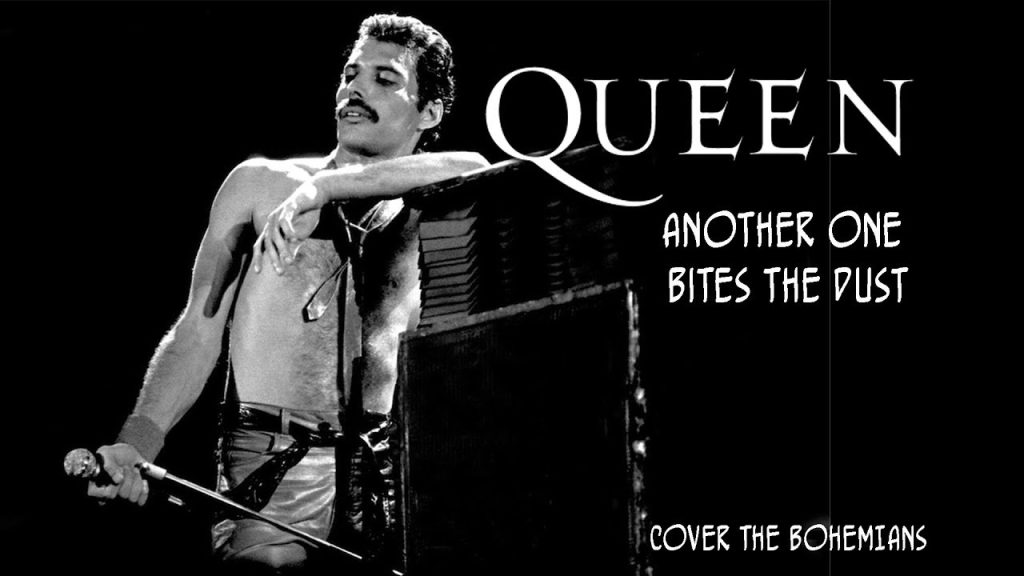
Another One Bites the Dust: Queen’s Bold Leap into Funk and Disco
“Another One Bites the Dust,” released on August 22, 1980, represents one of Queen’s most daring musical experiments—a perfect fusion of funk, disco, and rock. Written by John Deacon, the song’s minimalist yet captivating groove was inspired by Chic’s “Good Times.” Deacon, who admired R&B and soul, built the entire song around his hypnotic bassline, enhanced by crisp drum loops from Roger Taylor and Freddie Mercury’s intense vocal delivery. What makes this track remarkable is its departure from Queen’s typical guitar-driven rock, showing the band’s willingness to explore uncharted territory without sacrificing emotional power.
Initially, the track wasn’t intended to be a single, as some band members questioned its shift toward disco. However, Michael Jackson, an admirer of Queen, urged them to release it, predicting its appeal. He was right—”Another One Bites the Dust” skyrocketed to #1 on the Billboard Hot 100, where it reigned for three consecutive weeks. The song’s groove-heavy rhythm struck a chord not only with rock audiences but also in the realms of disco and R&B radio, giving Queen newfound exposure in the U.S. market. This cross-genre success broke barriers and marked one of the rare moments a rock band flourished on the dancefloor.
The song’s legacy is steeped in intrigue, partly because of the controversy it stirred. Certain religious groups claimed that playing the song backward revealed subliminal drug messages—a rumor that, despite being dismissed, only added to the track’s mystique and cultural impact. It became part of the conversation about hidden messages in rock music during the 1980s, further cementing its place in music folklore.
Beyond its success on the charts, “Another One Bites the Dust” became a staple of sporting events, movie soundtracks, and dance clubs. Its relentless beat and Mercury’s commanding presence make it timeless—still as exhilarating and rebellious as it was on its release. Queen’s willingness to take risks paid off, proving that they could not only adapt to the shifting musical landscape but master it, redefining what it meant to be a rock band in the process.